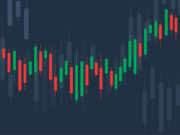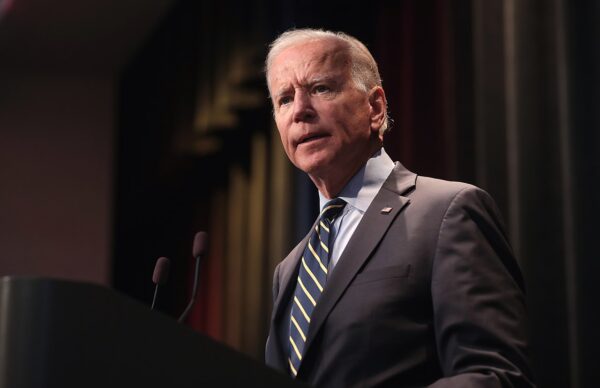The definition of an IPO is simple: An IPO stock is one that either recently went on the public market or is about to. Investors use the term to refer to any stock that is near its IPO date, generally up to one year after it goes public.
While IPOs were at a virtual standstill for much of the first half of 2020 because of the coronavirus pandemic, there has been an influx of companies aiming to go public amid the stock market’s rebound. Some highlights from last year include Cloud infrastructure firm Snowflake (SNOW), which made its debut in September, as the largest-ever software IPO at a valuation of $33.2 billion. And then in December, Airbnb (ABNB) pulled off its blockbuster offering, raising $3.7 billion after it priced at $68 per share, well above its expected range.
One of the big factors fueling IPOs is that venture capital markets have been flush with cash for the past ten years or so. They have poured that cash into thousands of startups, which has allowed them to quickly scale. The next logical step: The IPO, which provides still more capital and gives VCs, founders and employees a way to cash in. Not to mention, it brings opportunities for brave investors seeking to get in on the ground floor of the next Amazon or Apple.
Thanks to pushes from the likes of online brokerage Robinhood, trading stocks has become free (or much cheaper) for most investors. That has helped inspire larger numbers of young investors looking for high-growth opportunities, like IPO stocks. In light of this, it seems like a good bet that the momentum will continue for initial public offerings.
There is a laundry list of upcoming IPOs as a host of companies plan on tapping Wall Street for much-needed capital. In this article we’ll highlight a few of the most noteworthy IPOs currently in the wings.
Robinhood
What sets Robinhood apart from its (many) competitors, aside from its innovation, is its hyper aggressive business model, providing zero-commission trades and no minimums for cash accounts. It also allows users to buy and sell cryptocurrencies.
The COVID-19 pandemic actually had a big, positive impact on growth. The app scaled up to 13 million users in 2020 – a large number of people became more involved in stocks when they saw the opportunity to buy what ultimately was a big dip in the spring. Anecdotally, many users signed up using funds from their first stimulus checks.
In December 2020 Robinhood reportedly hired Goldman Sachs to lead its IPO. In September 2020 it raised funding at an $11.7 billion valuation. According to Reuters, an IPO could value the company at more than $20 billion, though the timing and valuation are dependent on market conditions.
The Robinhood IPO is expected to come in 2021, and it might not be without drama. The company already has been under regulatory scrutiny, and ultimately paid $65 million to settle SEC charges of misleading customers about revenues.
Coinbase
Coinbase, which operates the largest cryptocurrency exchange in the U.S., has confidentially submitted a draft registration statement for an IPO, with the offering expected to come in February. Expect this to be one of the hottest deals of 2021.
Cryptocurrencies such as Bitcoin have recently hit all-time highs. Some investors have flocked there because of worries about traditional currencies in the wake of rock-bottom interest rates and loose fiscal policies around the globe. Institutional investors including Paul Tudor Jones and Stanley Druckenmiller have been attracted to the space. And companies such as PayPal (PYPL) and Square (SQ) have helped cryptocurrencies go mainstream by allowing users to purchase them.
Coinbase, founded in 2012, now boasts more than 35 million investors across more than 100 countries. The company’s system is fairly easy to use and provides important services such as custody for digital tokens.
We’ll see for sure when the S-1 comes out, but the buzz is that Coinbase is generating profits. And that seems reasonable both given the growth in cryptocurrencies and the light capital needs for a digital marketplace.
The last funding round for Coinbase came in October 2018 when it raised $300 million at a valuation of $8 billion.
Nextdoor
Nextdoor, founded in 2008, is a social network for your neighborhood. While the site allows you to make connections, it’s also useful in sending out or receiving recommendations and referrals, organizing events and posting alerts. You can even sell items on the platform.
Nextdoor, which is available in 11 countries across 268,000 neighborhoods, including roughly a quarter of U.S. households, was founded by several Silicon Valley entrepreneurs who were able to quickly get venture backing from the likes of Shasta Ventures and Benchmark.
Sarah Friar, previously CFO of Square (SQ) when that company came public, became CEO of Nextdoor in late 2018. She also was an executive at Salesforce.com (CRM) and a top software analyst at Goldman Sachs (GS).
Nextdoor, which has raised $470 million since its founding, is expected to hit the markets in 2021 at a valuation of between $4 billion and $5 billion.
.
ROBLOX
Roblox is the bane of parents everywhere, and potentially more successful at extracting money from children than Pokémon. The gaming platform, which allows users to create their own game modes and characters, is huge with young children and boasts 150 million active users. About a quarter of users are under age 9, and 29% are between the ages of 9 and 12.
And it has built a platform that makes it easier for anyone to develop a game, which has reduced the risk of relying on just a few titles for success. The platform features more than 960,000 developers that have created over 18 million “experiences.”
Roblox currently boasts more than 31.1 million daily active users (DAUs) across more than 180 countries, and those users have spent 22.2 billion hours playing games over the past nine months.
During this same period, revenues jumped 68% year-over-year to $588.7 million.
Roblox recently filed its S-1. An IPO seemed likely to hit the markets during the first half of December, but the company pushed back that timetable into early 2021. Expectations are for an $8 billion valuation – double what Roblox was worth in a February Series G funding round.
Where to invest $1,000 right now...
Before you consider buying Airbnb Inc, you'll want to see this.
Investing legend, Keith Kohl just revealed his #1 stock for 2022...
And it's not Airbnb Inc.
Jeff Bezos, Peter Thiel, and the Rockefellers are betting a colossal nine figures on this tiny company that trades publicly for $5.
Keith say’s he thinks investors will be able to turn a small $50 stake into $150,000.
Find that to be extraordinary?
Click here to watch his presentation, and decide for yourself...
But you have to act now, because a catalyst coming in a few weeks is set to take this company mainstream... And by then, it could be too late.
Click here to find out the name and ticker of Keith's #1 pick...













